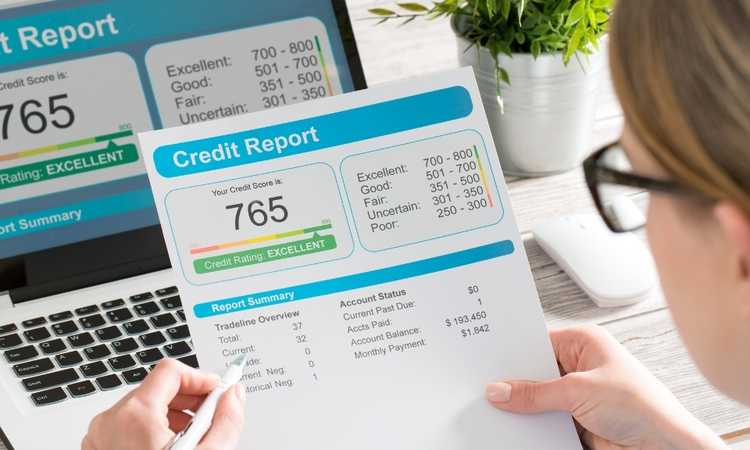Maintaining a good credit score is important for many reasons. A high credit score can help you qualify for loans, get lower interest rates, and even land a job. One of the best ways to maintain a good credit score is to make sure all of your contact information is up-to-date with the credit bureaus. The credit bureaus use this information to generate your credit report, and if any of the information is inaccurate, it could lead to a lower credit score. Here are nine simple strategies to boost your credit score.
And if your credit isn’t the best, that’s okay, too! There are lots of low cost (and free) ways to repair your credit.

There are three major credit bureaus in the United States: Experian, Equifax, and TransUnion. You can request a free copy of your credit report from each of these bureaus once every 12 months. Make sure to review your report carefully to identify any inaccuracies.
If you find any incorrect information, you can file a dispute with the bureau. Be sure to include supporting documentation to back up your claim. Once the dispute has been processed, the bureau will correct the mistake and send you an updated report. correcting errors on your credit report is one of the quickest and easiest ways to improve your credit score.
1. Get a copy of your credit report and score from all three credit bureaus
It’s a good idea to check your credit report and score from all three credit bureaus on a regular basis. This will give you a good idea of where you stand in terms of your credit history and borrowing power. Each bureau uses a different scoring system, so it’s important to compare them side by side. You can get a copy of your report and score from each bureau by requesting it online or by mail.
2. Review your credit report for errors or incorrect information
Once you have your reports, take some time to go over them carefully. Look for any inaccuracies or outdated information that may be dragging down your score.
3. Dispute any errors on your credit report
If you find anything that needs to be corrected, dispute it with the appropriate bureau. By taking these steps, you can help improve your credit rating and financial health.
Read This: The Best Credit Repair Companies
4. Pay off any outstanding debts and collections accounts
Having accounts in collections will damage your credit score. If you have any outstanding collections accounts, it’s important to pay those off as soon as possible. By doing so, you can help improve your credit score and get one step closer to financial freedom.

5. Keep your credit utilization ratio low – use less than 30% of your total available credit
One factor that is used to calculate your credit score is your debt-to-income ratio. This is the amount of money you owe each month compared to the amount of money you earn. creditors want to see that you’re using less than 30% of your income to pay off debts, so paying down your balances can help improve your score.
6. Apply for new credit cards only if you need them and always pay off the balance each month
Another factor that’s used to calculate your credit score is the types of debts you have. Installment loans, such as auto loans and mortgages, are seen as more manageable than revolving debt, like credit cards.
That’s because installment loans have set monthly payments and a definite end date, while revolving debt can fluctuate from month to month.
So, if you’re carrying a lot of high-interest credit card debt, you may want to focus on paying that off first.
Read This: How To Choose The Right Credit Card To Build Good Credit

7. Pay your bills on time to establish a good payment history.
A good credit score is essential if you want to borrow money – for a car, a house, or even just a credit card. Your credit score is a measure of how likely you are to repay debt, and the higher your score, the lower the interest rates you’ll be offered.
Payment history is one of the biggest factors in your credit score, so it’s important to make sure you always pay your bills on time.
If you have any late payments or defaults on your record, it will take time to improve your score. But if you start paying your bills on time from now on, you’ll gradually see your score increase. And as your credit score goes up, so will your chances of being approved for loans with low interest rates. So if you want to save money on borrowing costs, make sure you pay your bills on time.
Read This: The 7 Fastest Ways To Ruin Your Credit
8. Don’t close old accounts, as this will lower your average account age and could hurt your score
One factor that is used to calculate your credit score is your average account age. This is calculated by taking the total number of months you’ve had all of your credit accounts open and dividing it by the number of credit accounts you currently have open.
So, closing an old credit account will lower your average account age and could hurt your score. Additionally, if you have a good payment history with that account, closing it could also remove positive information from your credit report, which could further impact your score.
If you have an unused credit card that you no longer want, it’s generally best to leave the account open and just cut up the physical card. That way, you can keep the account active without running the risk of damaging your credit score.
Read This: 5 Costly Credit Card Mistakes Nearly Everybody Makes

9. Seek out help from credit repair companies if you need help increasing your credit score
When it comes to credit repair, there are a lot of companies that claim to be able to help you improve your credit score. But how do you know if a credit repair company is legitimate? And more importantly, how do you know if they’ll actually be able to help you improve your credit score? Here are a few things to look for when choosing a credit repair company:
First, check to see if the company is registered with the Better Business Bureau. This will give you an idea of how long the company has been in business and whether or not there have been any complaints filed against them.
Next, make sure the company offers a money-back guarantee. This way, if you’re not happy with the results, you can get your money back.
Finally, ask around for referrals. Talk to friends or family members who have used a credit repair company in the past and see if they would recommend them.
If you find a company that meets all of these criteria, then you can be confident that they’ll be able to help you improve your credit score.
These nine simple strategies will help you improve your credit score and get on the path to better financial health. Implementing just a few of these changes can make a big difference in your credit rating, so start today! Do you have any questions about improving your credit score? Let us know in the comments below and we’ll be happy to help.

Erika Finn, founder of Stacking Acorns, is an attorney who graduated from law school at University of California, Berkeley. She was a member and editor of the California Law Review and won the Prosser Prize for Legal Accounting. She holds a Master’s Degree from the University of Southern California (USC) and a Bachelor’s degree from Indiana University- Bloomington. Stacking Acorns is a personal finance website for women by women. We help mid-life women achieve financial freedom through real estate investing and other streams of passive income.